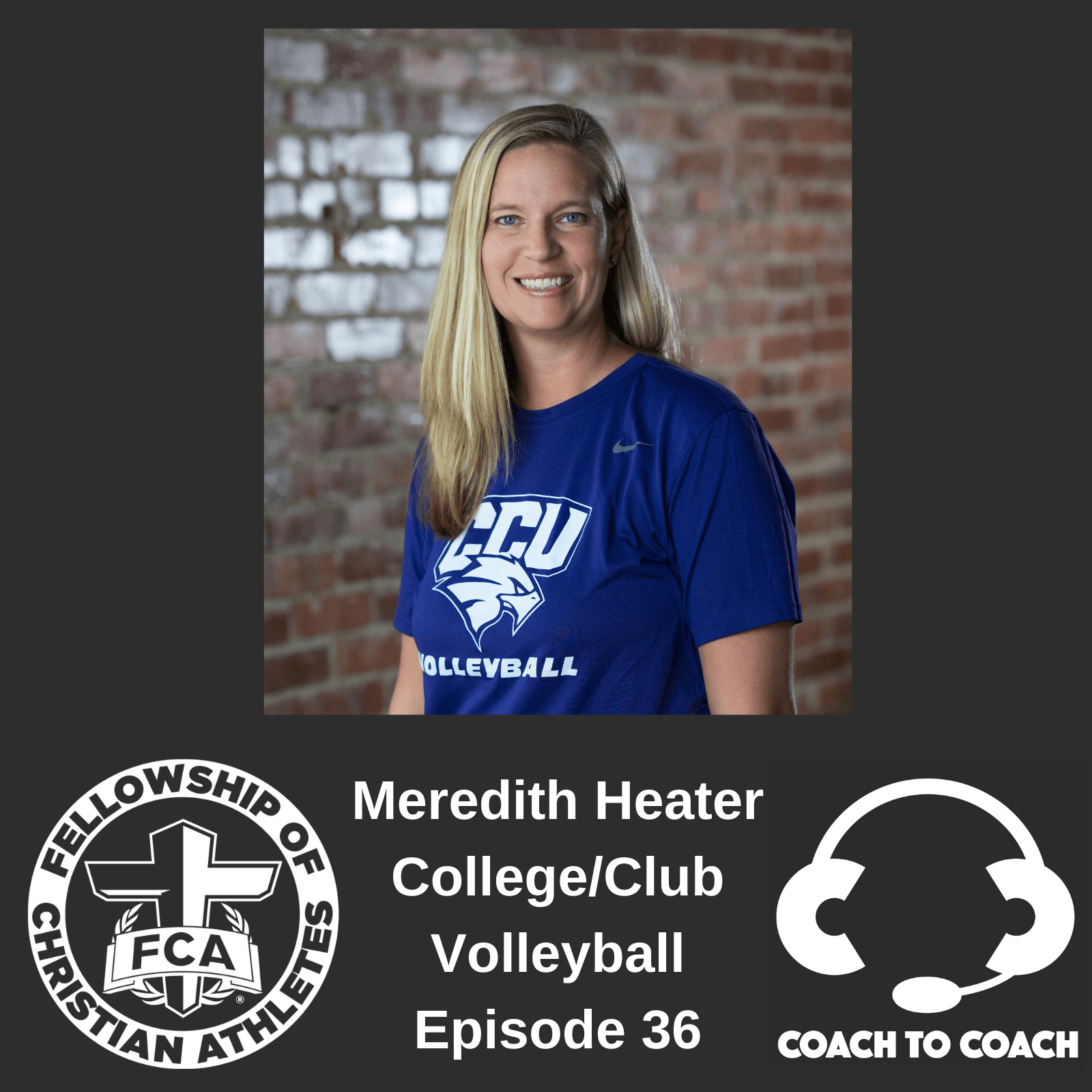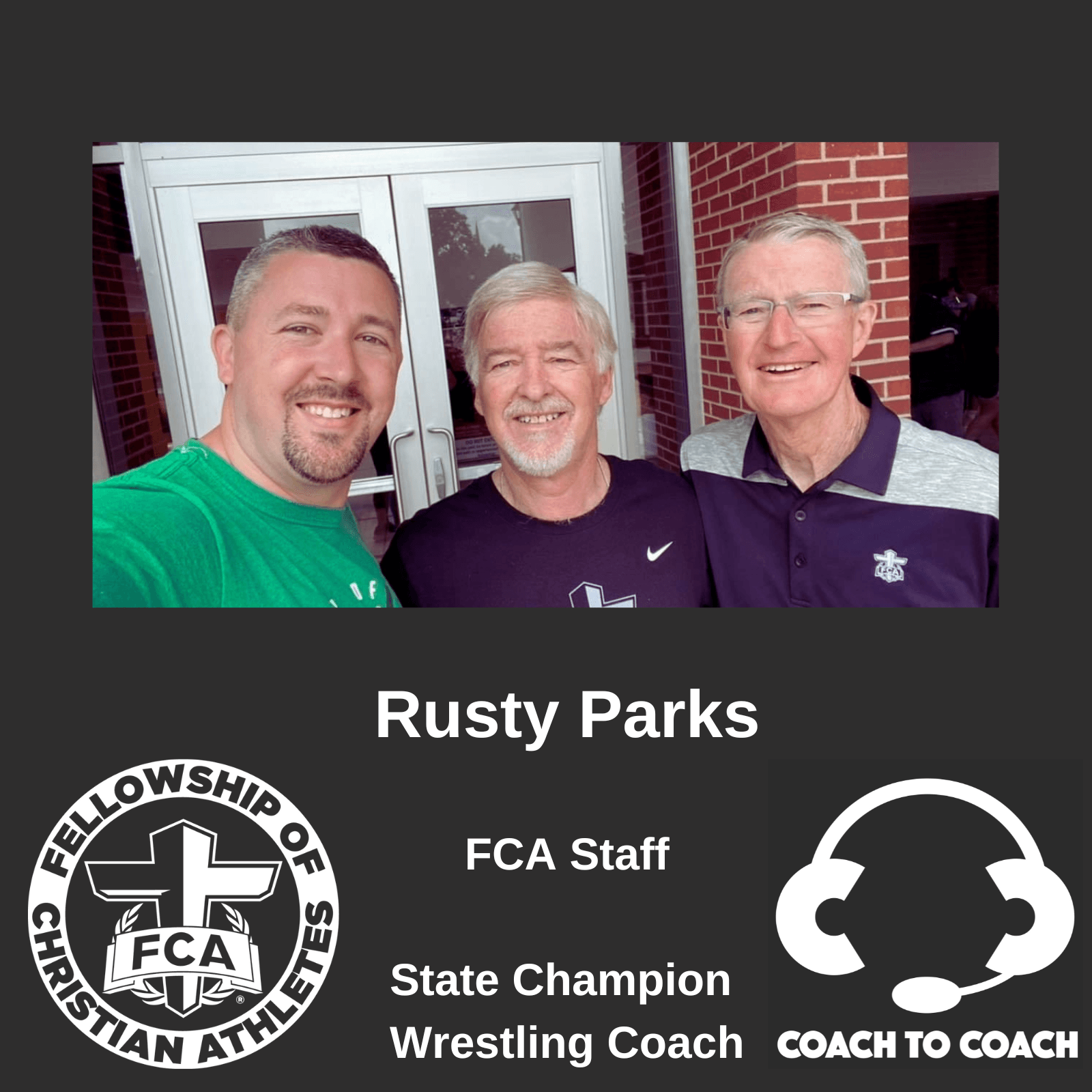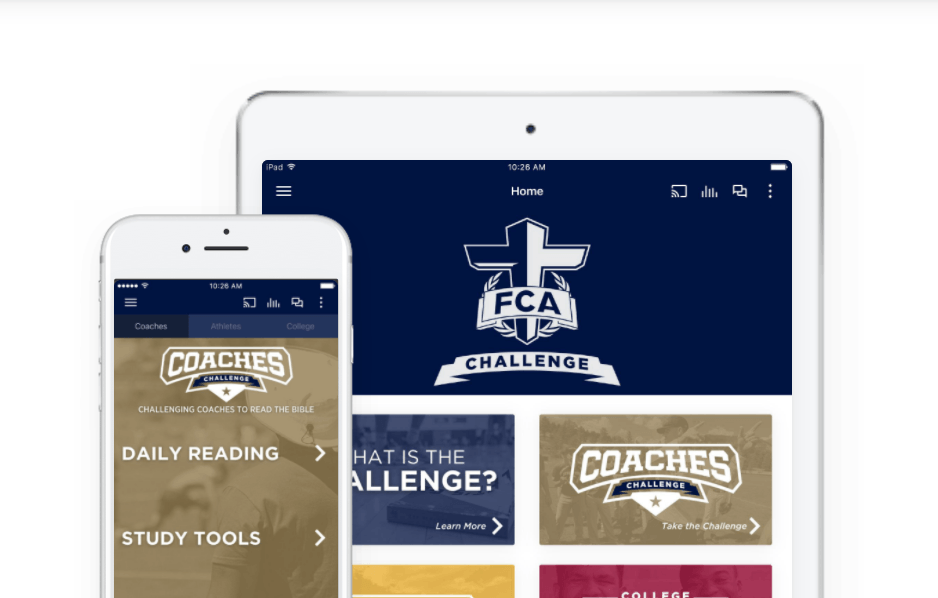"Building Trust, High Performance, and Future Leaders"
Nate Sallee • December 18, 2020
Ep. 36: Coach to Coach Podcast - Meredith Heater
Top apps to listen with (or stream below)
Episode Info
Sign up for the FCA Coaches Challenge Here:
https://fcacoacheschallenge.org
Join hundreds of coaches as they study through the New Testament of the Bible together in 2021. A weekly reading plan, optional daily text reminders, and the power of knowing you're not alone in the journey! Sign up today!
Meredith Heater, NKY FCA Area Representative and Volleyball Coach
Playing career:
Greenville University Volleyball Player
Coaching:
Multiple Junior College Stops
Fontbonne University
Cincinnati Christian University
Synergy Volleyball Club
Topics:
Player to Coach Communication
Affirmations
Journaling
Expectation Management
Other Resources mentioned:
Grief Recovery Handbook: https://amzn.to/3mtByp8
3 Dimensional Coaching: https://www.fcacoachesacademy.com/
Support the show: http://www.nkyfca.org/donate
Nate (00:00):
This is the coach to coach podcast, episode number 36 game time.
Nate (00:21):
[Inaudible],
Nate (00:23):
What's going on guys, welcome to the coach to coach podcast, where we believe every kid deserves a coach that cares, and every coach deserves someone in their corner. I'm your host, Nate Sallee. And this podcast is sponsored by the Northern Kentucky fellowship of Christian athletes. I know I say it just about every episode, but I just cannot thank our wonderful team enough of board members, of volunteers, of donors, of our staff, and just so many people that make things just like this possible. And thank you for listening. Take some time out of your commute or shoveling snow this time of year, whatever you got going. Our goal here is to capture the collective wisdom that we have right here in Northern Kentucky, greater Cincinnati and beyond from coaches and just get their story, get lessons learned and try to get better together because we can all learn from one another across all the different years of experience that we have. And this episode is no different. Our guest, this episode is Meredith Heater. Meredith has been in the area for a little over two years. I believe it is now. She has coached at the collegiate level at a couple of different places. Most recently was Cincinnati Christian university. And then now she has joined staff with FCA, but has 12 years of collegiate coaching experience. And she's coached girls and boys club volleyball at this point as well. And just have some amazing takeaways. And I'm looking forward to getting into this conversation and seeing what you can learn from Meredith. So I'm not going to put it off any longer, let's hop right in to our conversation with Meredith Heater. All right, guys, we are here. It is. When we're recording this, it is winter. It is cold outside. So we're going to try to heat it up today. And bring on Meredith heater. Meredith, how are you doing today?
Meredith (02:11):
I'm doing great. Nate, how are you.
Nate (02:13):
Doing well, just finishing up a week. We're recording on a Friday. So looking forward to the weekend. But Hey, just to kind of, kind of get us started, just give us the history lesson. You're new to the area relatively. But yeah, just give us the background on Meredith kind of your, your journey into coaching and how you got to where you're at today.
Meredith (02:31):
Sure. so I grew up in Orlando, Florida have been playing volleyball since I was about 10 years old. Started playing in elementary school and moved through middle school. High school eventually was able to play in college at a small college Christian college in Greenville, Illinois called Greenville university. It was Greenville college back in the day when I was there and and played volleyball there as a middle blocker. Got my first taste of coaching while I was still a student and was able to coach some local club teams while I was a college student. And then right after college ended up coaching collegiately for about 12 years. Coached a couple of different junior colleges, spent six years at Fontbonne university in St. Louis, Missouri, which is a D three college. And then recently my husband's job moved us Cincinnati area. We live in Northern Kentucky and I was coaching for Cincinnati Christian university for the past two seasons their women's programs. So I've coached club all along with that. And recently just started coaching boys as well with my son getting into the game and my daughter plays as well. So it's kind of a family affair. My husband actually played college volleyball as well for a club men's team. So kind of runs through all of us.
Nate (04:01):
Awesome. Yeah. You had yeah, you met, met John there at Greenville and he was golfing there as well. Right. So he was, yeah,
Meredith (04:09):
Yeah, yeah. He didn't, he didn't play either one as a high school sport and then he ended up playing both in college. He, he did baseball, wrestling and football in high school and then switched over to golf and volleyball in college. So he's, he's got an interesting story too.
Nate (04:25):
That's awesome. Well, we're super pumped to to have you not only in the area, but we'll also mention yeah. That Meredith recently came on staff here in 2020. So she came back from her support raising trip on March 10th. And if you know anything about middle of March of 2020, that's right before all the COVID shutdowns. So it's been quite the ride this year. But we actually met all the way when you were at Cincinnati Christian at the time and got through I'm trying to think. Did you go through the 3d at CCU or is that it?
Meredith (05:01):
I did transformational leadership at CCU, but not 3D.
Nate (05:06):
So we got partially through that before CCU is now RIP to CCU great times. I'm a, I'm a seminary alum there as well, but they, they shut her down. And now it's just straight Bible college, which led you to, to where you're at now, which is awesome. You still got to stayh in sports and still coaching. So you've had, gosh, you've had 12 years of college coaching experience and then several more years with club kind of all ages, you've played a lot of stuff. So what would be some of your, when you reflect back, what would be top two to three lessons you've learned over the years as a coach?
Meredith (05:44):
I think the biggest lesson I learned, especially with the college girls that I coached was to establish a relationship early and not just be the coach to play a relationship, but really be a mentor, be a positive influence in their life. Be a sounding board, be a place where they can come and just chat about what's going on with school or what's going on at home or, or whatever's going on. But to really establish that relationship with them first, make sure that they know that I care about more than just the skills that they're trying to get better at on the court. But I care about them as a, as a player, as a person as a young woman, who's trying to grow up to be probably a wife and a mom in some respects. And so I just, I really saw my purpose throughout those years. Coaching was to be more than just a coach was to reach them at a heart level was to reach them in their minds. Obviously I wanted them to be better volleyball players, but I knew that volleyball is essentially going to end at some point. I mean, we would all love to play sports until we're a hundred years old, but our bodies usually tell us otherwise. And a lot of the athletes I worked with were not going to go play professionally. You know, so college was kind of the last step for them. And I wanted to make sure that whatever impact I had on them was going to carry over off the court as well as on the court. So there were a lot of things that we tried to do in our program that, that showed them that, Hey, we, we take interest in who you are. We take interest in what you're about. How can we help? How can we be better for each other? How can we be better teammates and better friends? And how can I be a better coach to you? So, yeah, there was, there's a lot of great things we did over the years. My favorite was something we probably started four or five years ago. It was called affirmations where we just would take an athlete on every bus trip. We'd take an athlete and everybody would go around and say, just praise them with some kind of affirmation. Sometimes they were athletically related, but most of the time it was personality related or it's just something about them that we really loved and cherished. And we would take that time and everybody would say something hopefully different so that they, you know, got you know, somewhere between 12 and 15 different words of affirmation said to them about why we appreciated them as our teammate. That was one of my favorite times I've done it with junior high kids. I've done it with college girls and everything in between. And everybody seems to really enjoy that time together.
Nate (08:19):
Yeah. It's such a, such a simple thing, but such a powerful thing too. I know you have to, the things that you've been exposed to, transformational leadership calls it affirmations, three-dimensional coaching calls it spotlight, but the principles are the same as like, if we just took the time to look somebody in the eye and tell them something we appreciate about them without any like flattery or, or try to get something from them. But just saying something that's probably, as you're already thinking, but just verbalizing it to them. And that's becoming increasingly harder these days. I mean, it's not that comfortable even as an adult, but you think about middle school, high school, even college. I mean, gosh, how much communication is happening and text at best, maybe FaceTime, but so much of it's like Snapchat, DMs and everything else where it's a full-blown face-to-face man. It's just so powerful. It's simple too. That's good.
Meredith (09:09):
Yeah, that was definitely one of my favorites. Another one that I, I only did one year, but I look forward to doing in the future. As I, as I coach some club teams was journaling. We passed out these tiny little kind of like composition notebooks, but they were only about three by four inches. So it's something they could throw easily in their backpack and, and keep with us as we traveled. At first it started out as, you know, a way for them to write down their goals, kind of keep track of some things that they wanted to focus on. We had a word a week that we would focus on as a team. So at the beginning of the season, we came up with about, you know, 10, 10 words that we wanted to describe us as a team and to develop our culture around. And then we would focus on one a week. And so sometimes those goals would be related to that word of the week. Sometimes those goals would be related to a teamwork plane and what kind of stats they wanted to get. And then it turned into just an, another place for them to express themselves in the journal. So we would, we would say, Hey, we just had a really rough practice or a really tough loss. And I just want you to express your feelings and we didn't collect those often. But when we did as coaches, we would write back to them also and just kind of give them the feedback that sometimes they need, they needed to see on paper. And a lot of it was positive feedback. We just, again, we wanted to give them those affirmations that we wanted them to have something they could reference back to and be like, okay, my coach really does see me doing this in practice, and they see the improvement that I've had from beginning of season till now. And it just allowed us another way to communicate, because I felt like sometimes in the middle of practice, some of those short little things that I would say were going in one ear and out the other, whereas if they had something to reference back to I thought that would be better in the long run. And it, it definitely opened up a lot of communication with, with seeing what some players were feeling and how they were reacting to the way some people were talking to them in practice and ways we could make things better. So it was, it was definitely eye-opening and something I'm gonna use in the future.
Nate (11:12):
That's great. Just to have that feedback loop. I remember being exposed recently to a guy who's a CEO in Cincinnati, but he did a really big, deep dive, even wrote a book about millennial engagement in the workplace. So we could just transfer this millennial engagement in athletics or younger, but he said so much of previous generations assume they were doing a good job unless they were told otherwise, whereas millennials and younger assume they're doing a bad job until they're being told that they're doing, what's being asked of them. That there'd be a notice for doing the right things. And I don't know about you, but I see that play out at time. The assumption of worst case scenario happens a lot and we can fight it. We can hate it, whatever you like, but I think that's just the reality that we need to deal with. And I think that's a great way to do it.
Meredith (11:59):
Yeah. That's very interesting. I'll have to pay a little more closer attention to my millennials and younger people in my life.
Nate (12:07):
Yeah. That's awesome. Any other, any other top lessons from your time? Yeah,
Meredith (12:13):
I think so. The other thing that we just enjoyed was having time together off the court and I know 3d talks about check-ins or drop-ins maybe in visiting, visiting your student athletes at home. And that was a little difficult cause all my student athletes lived on campus, but I tried to make it a point to, you know, meet them outside of the gym and outside of my office during season, whether we go to coffee or dinner or or, or just chat one night when we're traveling down in the hotel lobby and checking in on, you know, the boyfriend situation or the parents or the school, whatever that is. Having some, some of that one-on-one time where we could just be friends essentially. Because once they graduated my program, I mean, they were 22 and I did see them as a friend and obviously I wanted to be a mentor in one capacity, but I wanted, I wanted them to see me as a friend just going through a different stage of life which I was for the majority of my career. And so I look back now and it's just awesome to see all my former players having kids and get married and starting their career and investing back into coaching and seeing that coaching tree is awesome. You know, sometimes they'll reach out and they're like, how do you deal with this? What would you do in this situation? And I'm just glad that they, they feel like they can still reach out to me, even though it's been, you know, 12, 13, 14 years since, you know, we've had a relationship as coach and player. So that's been awesome.
Nate (13:44):
Well, especially the college age I've heard it referenced, it's that last stop at the train station before the real world hits. It's like this interesting in between ground where there are quote unquote out of the house, but it's that last season of life before they're fully kind of flying on their own. And it's really cool to kind of transition them them. Well, so speaking of you said that they reached out to you like, man, this is coming in. How did you deal with this? Let's talk about some of the challenges that you've had. What have been some of the hardest points where you're like, man, why am I even doing this, you know? I'm sure you've probably thought about quitting at different times. Like what's been some of those really, really challenging times. And how did you get out of it?
Meredith (14:22):
Gosh Uh the first one that comes to mind is parents as a college coach, you would think, Oh, I don't have a lot of, you know, input from parents and, or a lot of interaction. And, and I, I had some great parents along the way who I consider friends who are great support, but I also had, you know, one or two that ruined it for a season because their expectation was different than, than what I was doing. And so they had an expectation, you know, their daughter would play this amount of time or was this good and was offered these, these scholarships. So that should translate into our program as her being a starter or six rotation player or whatever their expectation was. And, and I wasn't living up to that, you know, we've, we had some conversations I always told the players, you know, you, you come to me if you have an issue and most of them did. Um and then there was usually a parent that would kind of step around that line and, or cross that line and around that boundary. And, I would let them know, Hey, I will, I'll have this conversation with your daughter. She's an adult. And I respect how you feel, and I appreciate you bringing it to my attention, but it's a conversation for her and I to have personally, and she knows the expectations I have for her. I meet with each of my, my students multiple times through the season that says, Hey, here's the areas I want you to improve. If you're looking to get more playing time, this is a way you can do that. So I felt like I'd laid out my expectations correctly. And most parents after that initial contact of them being able to get whatever they had off their chest, didn't say anything else. Um I think I had one instance where she quit in the middle of the season a week or two before the season ended. And dad went off on my AD in the parking lot. But those were few and far between over the course of 12 years. And and so, you know, I think just being honest and having those face-to-face conversations, it's tough, but to let them know that you at least heard them and that you're willing to have the conversation with their daughter that I guess that's the biggest takeaway I got from those hard experiences that I feel like screenplay over. Yeah.
Nate (16:36):
Yeah. Well, it sounds like you took, you went on the offense on that. It's probably a big reason why you only had so few of those interactions because you were the expectation manager, just like your saying is so key. It's like putting that out on the front end, revisiting those, it kind of goes, goes what we were talking about. Like there's no assumptions on where they stand, if you're communicating consistently, like, okay, here's where you're at. Here's what you need to do to improve, to play more like all of that really helps I think minimize the, the hard ones. And like you said, trying to funnel everything towards that. One-On-One face-to-face interaction as much as he can. I'm sure there's a lot of good as well. Yeah. A lot of times. Yeah. It's amazing what can happen if they get that one at one kind of spot for your chest? Do you handle that well? And then how many times, I mean, I'm sure it was tempting to just fire right back and I'm gonna multiply it so well done on kind of going through that. Any other, any other like challenges or low points, I'm sure there's several, but any of them that kind of rise to the top on your mind?
Meredith (17:41):
Yeah. I mean, the, the experience with CCU closing was probably the toughest thing that I went through trying to deal like it was, it was really odd after we got the news, it was like October 30th of 2019, when we were called into the chapel they told the staff and faculty at the same time that an email went to the students. And so in the middle of this chapel, I'm finding out that I don't have a job as of December or, or possibly sooner, a lot of coaches were let go sooner. Our seasons still had two weekends of travel. Wasn't sure that was going to happen. And then the girls start texting me cause they're freaking out. And I'm like, Hey, I'm finding out just like you, I will, I will. As soon as I get out of here, we'll meet at so and so's house, which was a house on campus. But like the days after that, it was, it was like a funeral on campus. It was, it was really tough to deal with the grief. And I think anybody that's had some kind of tragedy if you will, on your team you know, has, has been through something like that where you have to, and this is when those one-on-one relationships are important where you'd have to just rally around them and you have to cry with them and you have to hug them and you'd have to say, I will help you in any way that I can, which was all I could do. You know, I, I helped them get to places if they wanted to keep playing, then I helped them, you know, find a place to play and get transferred. And and I was there for them to say, yeah, I know the stinks. Like I know the situation is horrible and I'm sorry, and I wish I could do more to help you to help you. And I'll do everything I can to make this transition better for you. But in the midst of that, grieving myself, knowing, okay, is coaching, you know, is coaching ending for me? I thought I did this my whole career. And now I'm like, I don't know. Maybe God has something else in store for me around the corner, but it's so crazy not knowing what that is. So I really would say that that season of my life was really, really hard.
Nate (19:38):
Yeah. And yeah, it's something that, gosh, this is like a coach coach podcast, but I think grief and loss is a really relevant thing to, to give a little bit of attention to, because how often, not only when you have terrible tragedies where your athletes might've, you know, there might be a student that, that passes away that's at their school or a close relative, or honestly just kind of the, the loss of either a season or the end of their career, whatever that is. There's just a level of, of grief. That's inevitable. It might be varying degrees, but loss is going to happen in our athletes lives. And how do we help walk them through that? I think is a really, really key thing. And, and you can't do that unless you have the relationship like you were talking about. So that, that that's phenomenal that you kind of have that foundation to mourn when they were mourning. And then I'm sure I know you celebrated what the, when they were, when you won matches, but there's now those different times for everything. And literally be with him through that. I think that the presence is powerful in that sense. And I'll just give a quick plug before switch on. There was a book I went through that I had some personal growth in after the loss of my dad at 21. It was years later, I went to this book called the grief recovery method, I think is the exact term. We can link it in the description, but I went through that process and there was something that I would say I was, I was mostly, I was totally like functioning and felt like I had grieved for the most part, but I felt like there was a small section. It was kind of over in the corner that hadn't been quite cleaned out yet. You know, it was like, I would say about 15 to 20% of my, of my grief, you know, the grief getting to a hundred percent wasn't quite there. And going through that process of like, okay, fully reflecting on it, learning from it, completing it, and then moving on. I think there's, there's some, obviously there's going to be some wounds there, but but to help people kind of get the most out of it, I can get can God can use everything. God can redeem even the hardest stuff. So not discounting the pain that's happening at the moment, but also coaching them through, Hey, this, you know, God's teaching you something, there's another door opening. We just can't see it yet. And having to haven't had the courage to keep going as is a really important thing for, for volleyball and then later in life, too. So that's awesome. Well, sweet, w you have, you've gone through a three-dimensional coaching and we've referenced that already. A couple of times now have led multiple people through it, as well as being one of our awesome staff members. So now having gone through it, and you're currently a coach now, and you're kind of processing this in real time on what you're going to implement in the future, what would be just any feedback or main takeaways from the three-dimensional coaching training that you went through?
Meredith (22:28):
A couple of the things that I really loved about the training that were, that were new to me was was the purpose statement, the purpose statement for a coach to something for them to, you know, focus back on and why we're doing what we're doing, especially when those hard moments come or that that parent gets angry with us, or that, that player, you know mouths off at us or whatever it might be that, that we struggle through. It makes us want to quit coming back to that purpose. Why am I doing what I'm doing? Why is the Lord led me here, called me here? And and being able to focus on that I thought was really good and it helps. It really just helped me to kind of form my thoughts and focus on, okay, what are the specific things that I want to pass on to these players? Because I have hopefully a positive impact on their life during the season. So that was one thing that I just loved about 3d coaching. A lot of the the plan that they give you at the end to the different things that you can implement were some things that I'd already done. And then like the one word option I love that turned to, to come up with one word to focus on for the year or for the season, or maybe it's one word per player, having some of those discussions on about, Hey, what do we want to get out of the season? Hey, what's your focus for this? How can we encourage one another to be better teammate? I'm all about those things, but I felt like 3d really gave you the tools and the plan going into your season or going into your off season. Even, there was a lot of different things about serving together and things like that, but I'd always had in the back of my head, Hey, these are great ideas. Okay. How do I, how do I decide which ones are right for, and which ones are right for right now or off season or in season or post season. So I think it really helped me just kind of make a, like a, a yearly plan and be able to carry that out in the future.
Nate (24:22):
Yeah, that's great. Well, and to be intentional on that, because if we're, if we're not proactive there and have a plan, there's so many coaches I've talked to, they're like, Oh man, I would've loved to have done X, Y, or Z, or I even had intended to, but in the coaching world, I mean, mass distractions are coming your way constantly. There's so many different things that can be pulling you away, but to just take that time to, to map out a whole year, then, then it's just a matter of executing on it versus like, Oh, there's all this stuff. Sounds really good. I hope I can get to it, but it seems much more doable when it's down to pen and paper.
Meredith (24:57):
Yes, absolutely.
Nate (25:00):
That's really good stuff. Well, Hey, we also want to get better. We want to grow, but we also want to take a second to have at once while to have some fun on here. So is there a time or a story that you have that you look back and you're like, Oh man, that's gotta be one of the top embarrassing moments or one of those times where I just could not stop laughing. It was going on.
Meredith (25:21):
I definitely have some of those traveling with the girls on a charter bus you know, 10, 15 times a season led to lots of memorable moments and lots of time together. One of our favorite things to do besides watching movies was to play heads up on our phones. So it's it's a game and an app where you hold your phone on your forehead and everybody else shouts clues at you, you're trying to get the word on your forehead. And we would play that often. And I, I remember specifically this one time, one of my players, Megan was, was doing heads up and she wasn't holding on and something happened on the bus. I don't know if they hit the brakes or took a turn. And she just went flying across, across the charter bus and into a window. And and the rest of us just, you know, lost it and she popped up. She wasn't by keep going, you know? And so we just, we had lots of memories like that. Just playing games and enjoying each other's company on the bus and
Nate (26:27):
Just heads up. She was literally having to get her head back up to float across on this. It's amazing.
Meredith (26:33):
Yes, exactly. Awesome time.
Nate (26:38):
Yeah. yeah, just to kind of, just to kind of wrap up a little, if you were to consider Meredith as a college student and just getting started with coaching, what would you tell her as far as something you wish you knew then that, you know now?
Meredith (26:56):
Oh gosh, so much stuff. I think the biggest thing would be start those one-on-one meetings immediately. I think when I was younger and I was so focused on the volleyball and I was so focused on, I got to get these girls in the same gym. I gotta see what we have. I gotta see what we need to work on. And I was so focused on the skills and the volleyball and the preseason, the training, trying to get us ready for that first game. But I really do think that the relationships have to come first. I think the trust and the building up happens after the relationship happens. So I think the more the more one-on-one meetings you can have leading up to your season is awesome. The more you can show them that you care, who hear what they're going through, you'd find out what else is going on in their life, what their family's like, the more you can invest in them as a person. I think it really helps on the, on the backside with when, when you challenge them on the court or on the field. And when you challenge them, you know, to give, to give you everything and to run through a brick wall for you, they're going to do that. And if they have that relationship with you if you've just hammered them inside the gym the whole time, it might not happen as well. Just depends on the athlete I guess. But I do really think that relationships are key. And I think I learned that the hard way a couple, couple of years down the road, not from the very beginning. So so I that's, that's what I would tell my younger self, for sure.
Nate (28:29):
Yeah. That's powerful staff and just an encouragement. If you're a sport that has a larger roster than 9 to 12 girls on there, Hey mate, you know, divide and conquer, you know, it's okay if you have a staff for a reason. So if it's football team, you know, position coaches, like that's kind of, there'll be overwhelmed as a head coach for those head coaches listening that you, you know, therefore I need to have one-on-ones with all 60 coaches. I mean, there was a, you know, there there's some, there's some things that you can do, one head coach to the whole 60 football players or archery team or whatever, or the track team or whatever. But a lot of times it's, you have those different spots where you can focus in on it. And you know, don't, don't let this be an overwhelming burden. Let it be something that, that hopefully you can enjoy to just find a way, pick something and go with it. Uh and I think it would be, you know, you'll have the long-term impact of relationally, but also at the end of the day, I think the short term results athletically will come as well. Well, Meredith we, we appreciate taking time wrapping up a quarantine with the fam all sorts of stuff. We're just rolling with the punches during Covid times and just grateful to have grateful to have you on staff. And I know you've already made a difference in the lives of people here in Northern Kentucky, greater Cincinnati, and then,already plugging in hard way. Umaking a difference in coaches here in Northern Kentucky. So just thanks for all that you do and, and your heart to,continue to, to answer the call that God has on your life.
Meredith (29:56):
Thank you. I appreciate the time to share.
Nate (29:58):
Yep. Excellent. Well, have a good one. We'll talk to you soon.
Meredith (30:01):
Thanks. [inaudible]
Nate (30:13):
Well, there, you have it guys. Our conversation with coach Meredith heater, super grateful for her coming onto the show. I love what she had to say about building trust with our players, laying that foundation and having that expectation management, that open line of communication and how that can make a ton of difference on and off the court. So thanks again for, for sharing those nuggets of wisdom. Well, Hey, I don't know about you, but 2020 has been a bear. A lot of really, really challenging things. A lot of really, really good things we could celebrate as well. That may not be getting pushed out as much, but I'm looking forward to 2021 as you probably are as well. One thing we want to put on your radar is the FCA coaches challenge. You can go to FCAcoacheschallenge.org and sign up. You can join hundreds of other coaches across the state, across the country who are going to be reading through the new Testament through 2021 together, it'll be a synchronized reading plan. They'll send you an email on Sunday once a week to give you the reading plan for that week. You can also sign up for a daily text reminder for the passage for that day. And we know when the leader gets better, everybody gets better. This would be a great way to grow personally and spiritually. And I got to tell you, I know it would be a blessing to you and you would not be alone to be joining hundreds of other countries.
Sign up at FCAcoacheschallenge.Org.
NKY FCA Blog
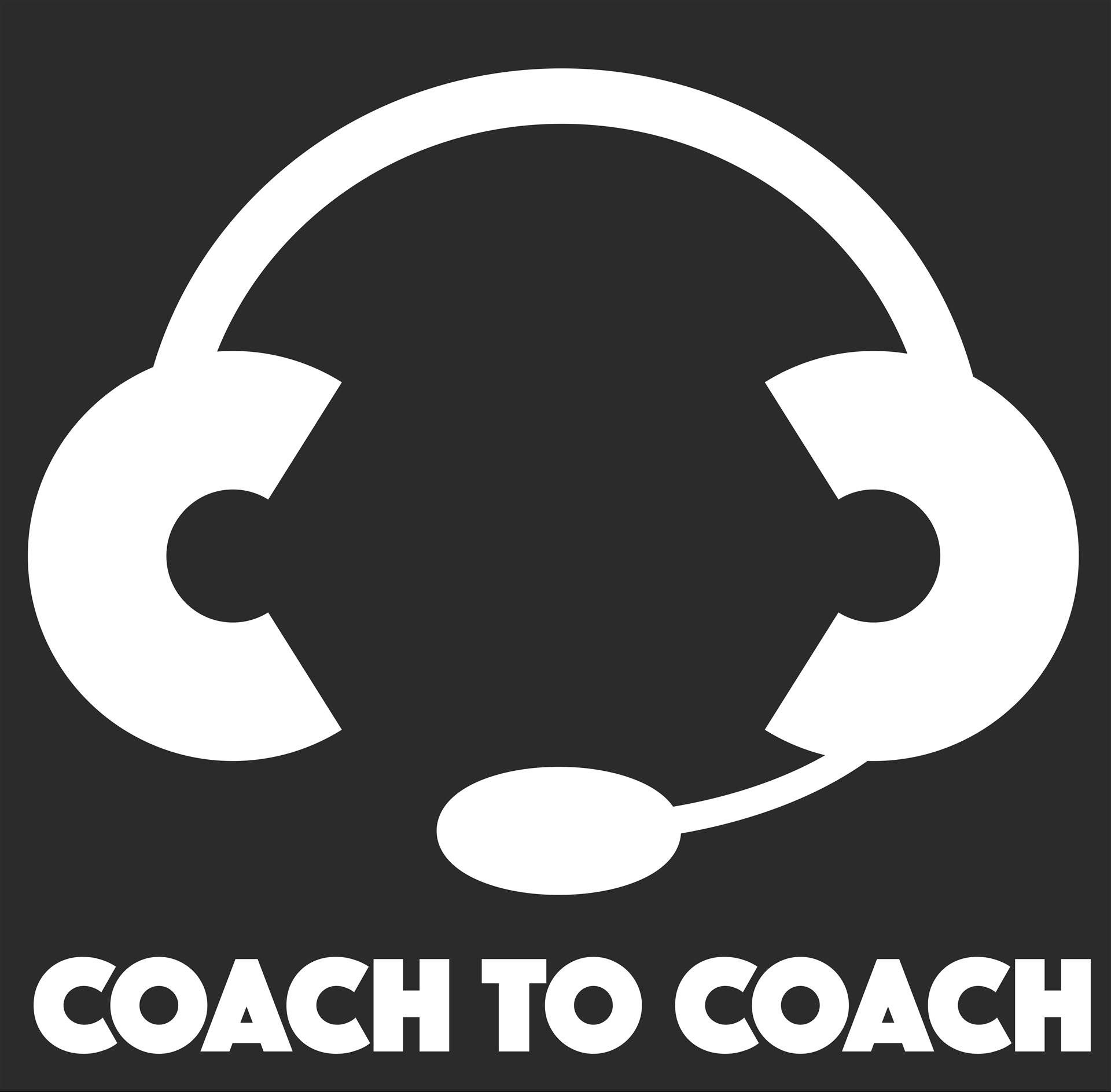
Dr. Jason Hudson joins us on the podcast. Jason will be heading up our FCA Force Soccer club beginning in the Fall of 2025! He is a pastor by day at Redeemer Church in Fort Thomas. Website: https://www.redeemerky.com/ He's also done his doctoral dissertation on the role of technology in worship and spiritual growth. FCA Website: https://nkyfca.org Instagram: @nkyforcesoccer
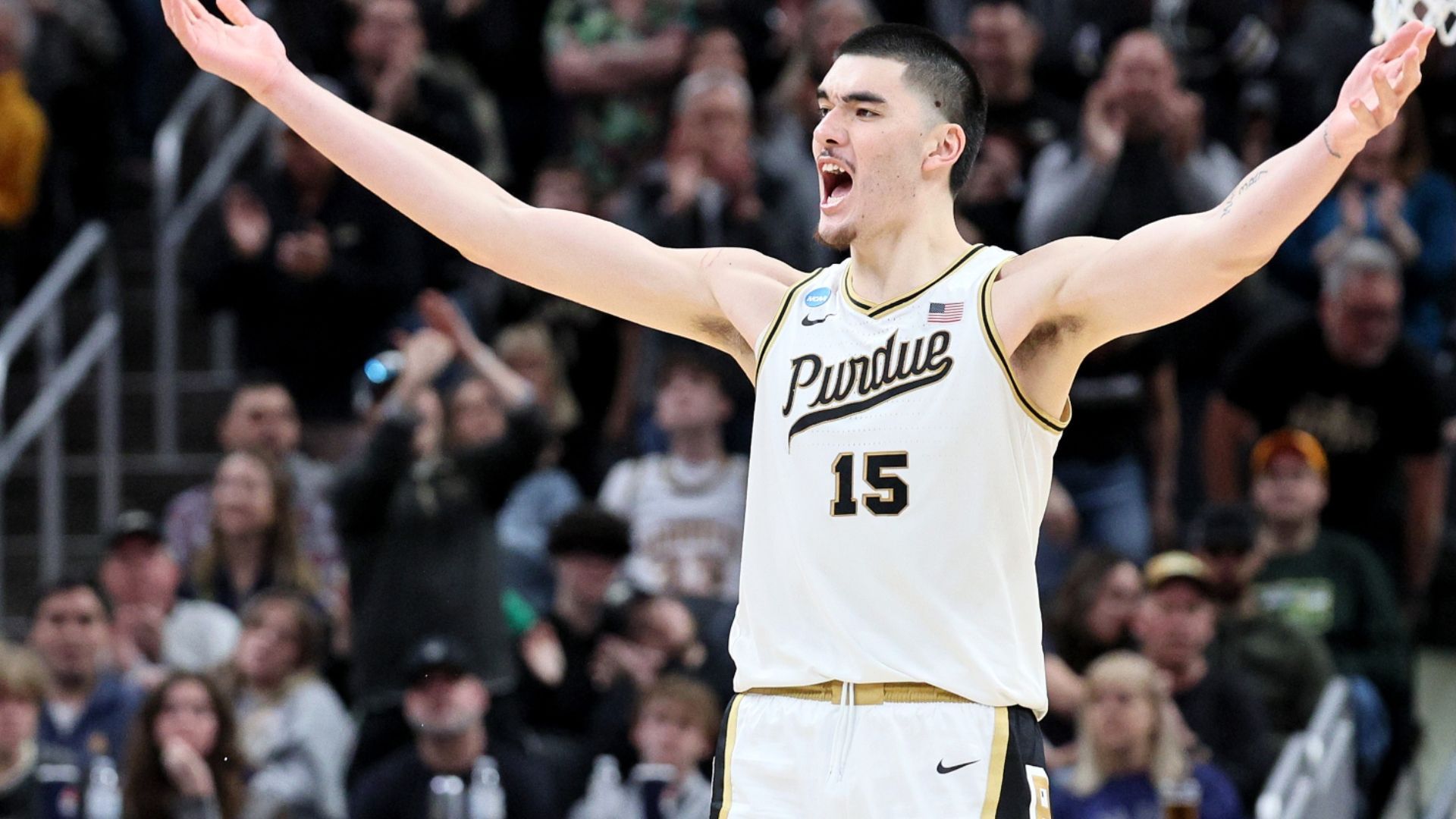
At 7'4" and 300 pounds, Purdue center Zach Edey is "the man in the middle." He occupies a lot of space for rebounds and scoring. Purdue's hopes for winning a national championship are weighing heavily on Zach Edey's shoulders. Long ago another "man in the middle" was nailed to a cross on a hillside outside Jerusalem. He was jeered at, taunted, spit on, and reviled by those passing by and even by those who were crucified on either side of Him. For six hours Jesus hung on the cross. Jesus Christ is "the man in the middle". The hope of the world was pinned on Him. He was dying for the salvation of the entire world. "For Christ also died for sins once for all, the just for the unjust, that He might bring us to God." (I Peter 3:18) This Easter, Jesus Christ, "the man in the middle," wants to get in the middle of your heart. He wants you to accept His payment for your sins. You can receive that payment by saying something like this: "Lord, thank You for being the "the man in the middle", for dying for my sins on the cross. Thank you for your payment for my sins. Get in the middle of my heart and change me from the inside out. Amen For more infomation go to: https://thefour.fca.org/
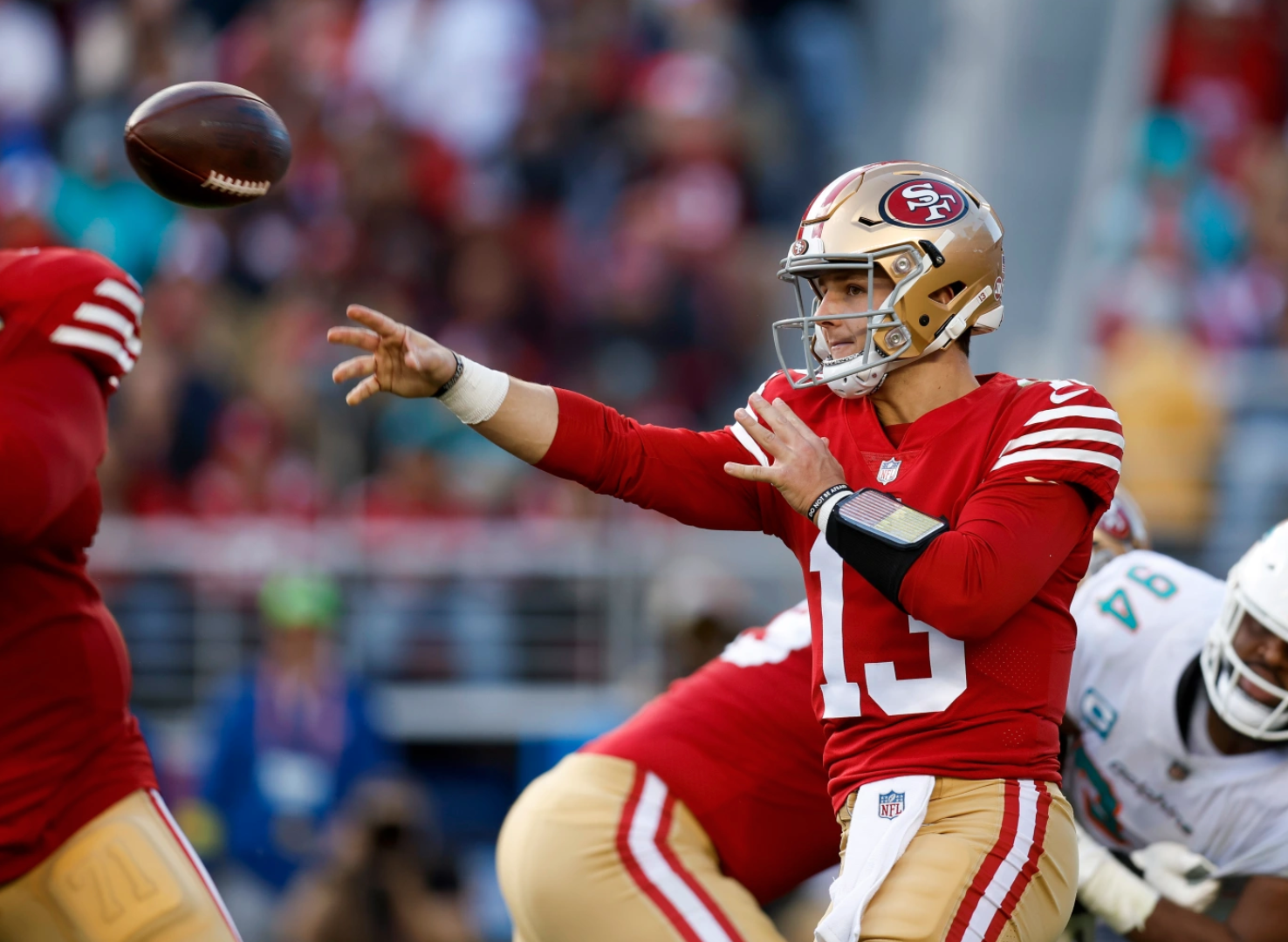
In the NFL draft, the final pick is tagged with the label "Mr. Irrelevant". Irrelevant. "Unnecessary. Not meaningful. Serving no purpose. Of no significance. Having no bearing on the matter at hand." In 2022 Brock Purdy was the final pick of the NFL draft. He was Mr. Irrelevant. Yesterday, Brock Purdy, was far from being "irrelevant". As the quarterback for the San Francisco 49ers, he led his team to a convincing win over the Dallas Cowboys and sent them into the NFL conference championship game against the Philadelphia Eagles. Brock Purdy was not "irrelevant". He is not who the NFL draft says he was. And yet with all his relevance to the success of his team, there is another level of relevance for us all. Not what the success or lack of success of our teams tells us who we are, but who God says we are. And God says, "You are relevant. You matter. I see you. You make a difference." The cross of Jesus Christ spells out our relevance. Jesus says to you, "You are worth dying for. You are worth 6 hours on a cross with nails in my hands and feet. You are worth it." Coach, take your relevance as a gift from God. He gives that to you. Relevant because God says you are. A relevance of being, not of doing. Lord, help us remember to take our relevance from who we are in relationship to You and that is one of a beloved son or daughter. No matter how good it gets or how bad it gets. Even if we feel irrelevant. Marty Mayer Northern Kentucky FCA
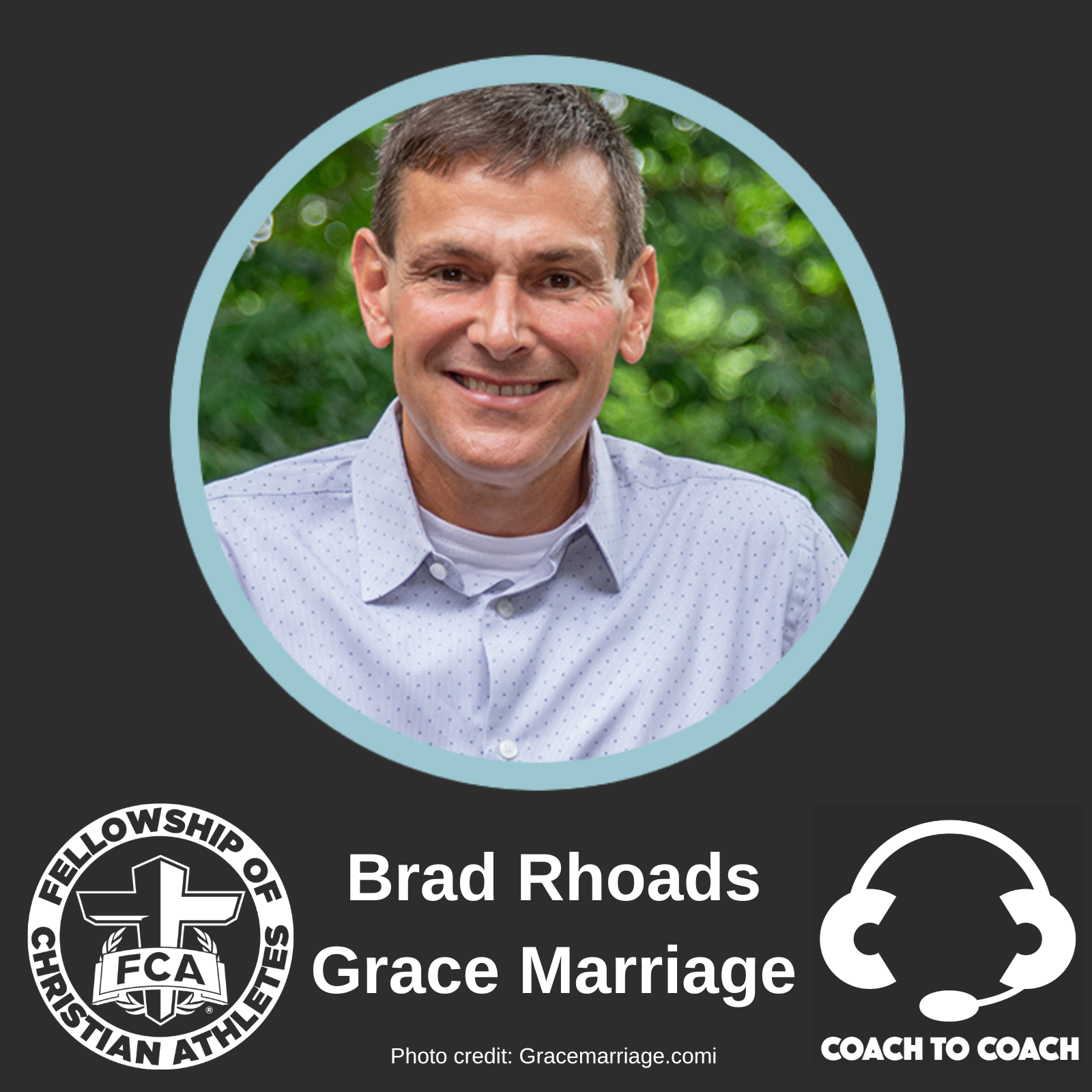
Sign up for the Coach and Spouse Getaway: nkyfca.org/getaway "Taking your marriage from stagnant and complacent to active and creative" - Brad Rhoads Coaching can be tough, and so can marriage...the two together can put even the best relationships to the test. This is why Brad Rhoads with Grace Marriage jumps on the podcast. Website: https://www.gracemarriage.com/ He shares his journey from a college tennis player to a lawyer, to a switch to full-time marriage ministry. He and his wife presented back-to-back years at our KY FCA Coach and Spouse Getaway and crushed it! Walk away with some great insights and tips on how to have a marriage that is full of life and fun Support the show Instagram: @nkyfca
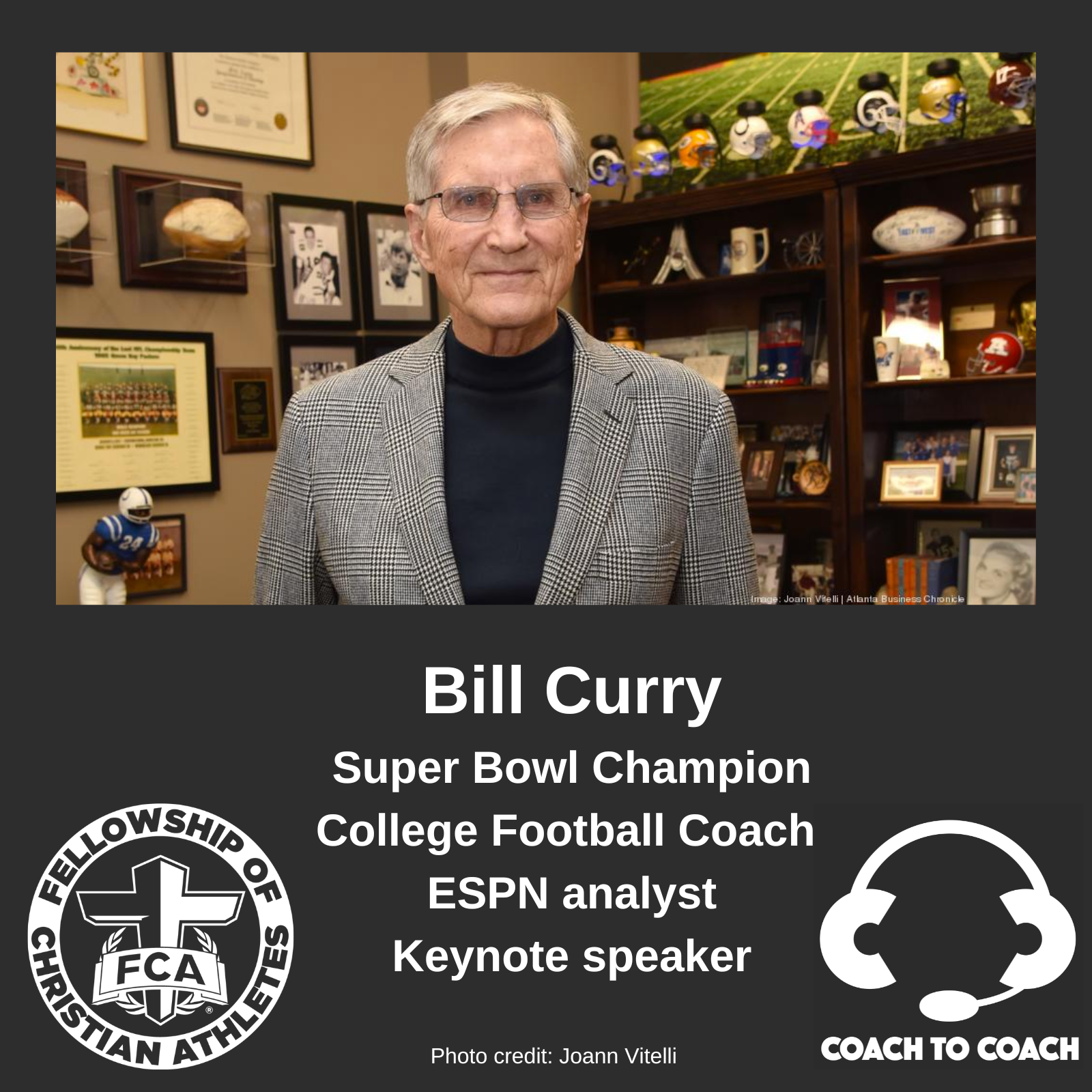
Coach Bill Curry gives us what Jeremy Sheetinger calls "audio gold" on this episode! Some of the topics include: - Stories from playing for Vince Lombardi and with guys like Bart Starr and Johnny Unitas. - Coaching stops at Georgia Tech, Kentucky, Alabama, and Georgia State. - "6 Characteristics of a Champion" - "Power of the Huddle" - Reflections on navigating coaching and personal life Follow Bill on Twitter: https://twitter.com/coachbillcurry Bill's Website: http://billcurry.net/ ----- NKY FCA Website: https://nkyfca.org/
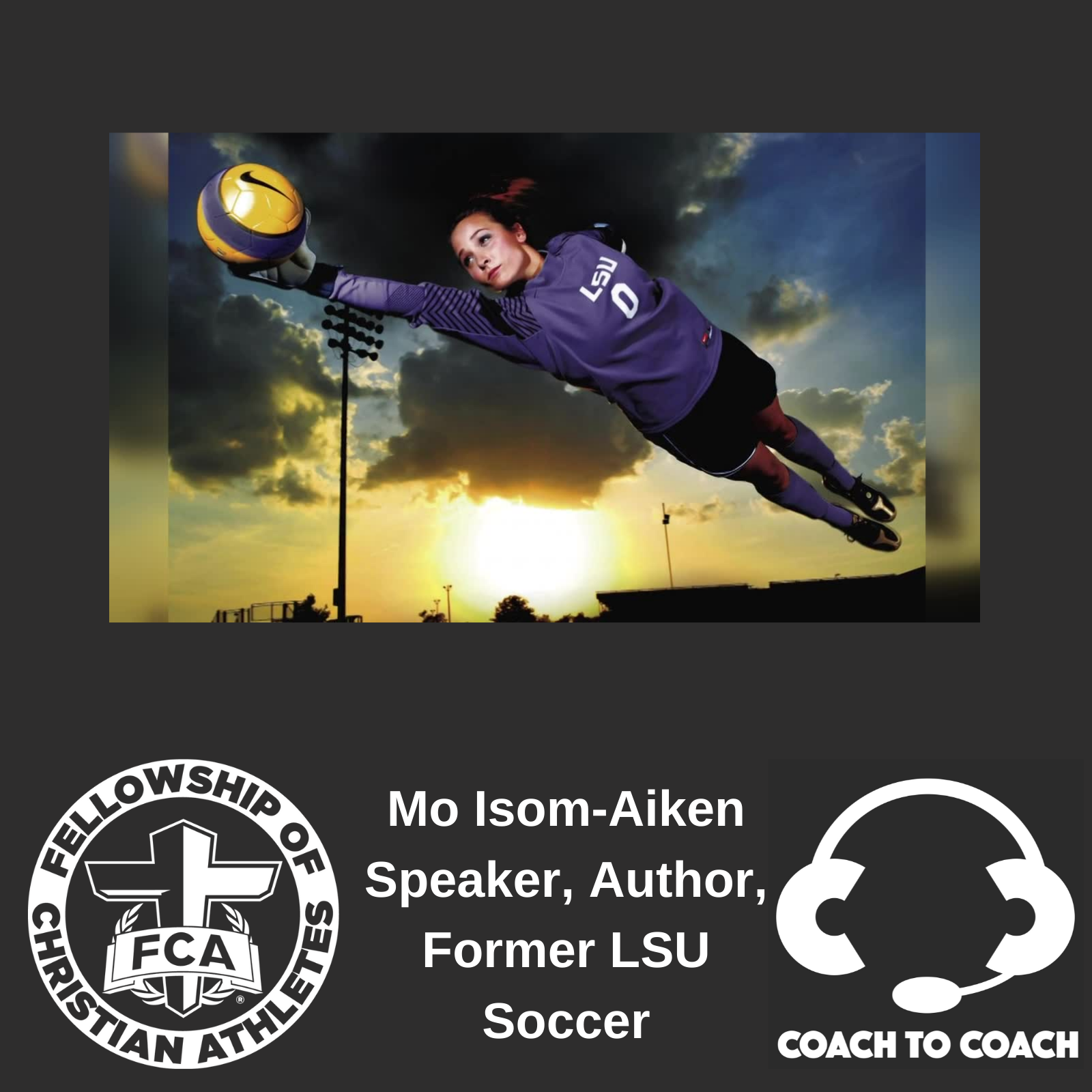
Episode Info Sign up for the FCA Coaches Challenge Here: https://fcacoacheschallenge.org Join hundreds of coaches as they study through the New Testament of the Bible together in 2021. A weekly reading plan, optional daily text reminders, and the power of knowing you're not alone in the journey! Sign up today! This is a unique episode where we hear from Mo Isom-Aiken as she shares with a group of local High School athletes here in NKY. Mo has an incredible athletic pedigree: LSU All-American Goalkeeper Sportscenter Top 10 Play for scoring a 90-yard goal SEC All-Freshman Team Trained as a placekicker for the football team LSU's all-time school record in women's soccer with 35 victories and 25 shutouts. Her family and faith are top priorities in life and it has led her to become an author of 3 books as well as fulfilling speaking engagements around the country. More info on her books and other resources can be found on: https://www.moisom.com/ The goal of this episode is to give a fly-on-the-wall perspective of Mo's story but also an increased awareness of a day in the life of an athlete living in 2021. We hope it's encouraging, inspirational, and eye-opening...and that it ultimately helps you grow as a coach!


